8 States That Could Suffer the Most From a Trump Presidency
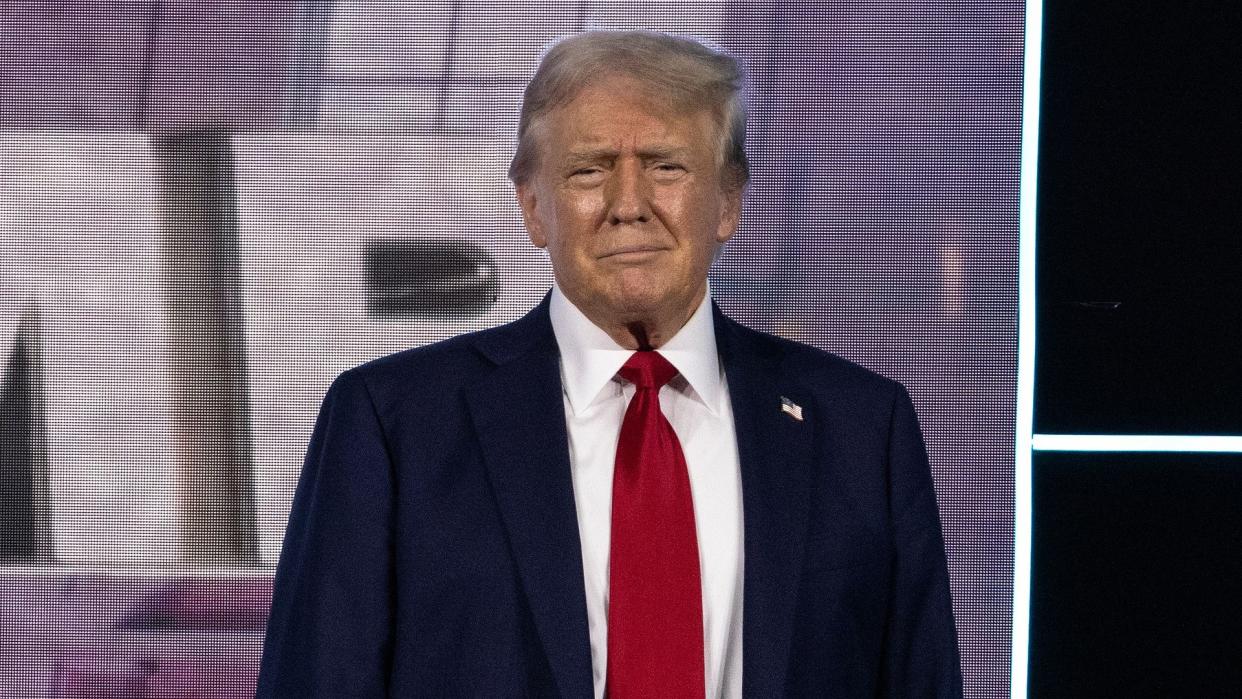
Any leadership shift in the Oval Office brings excitement and concerns.
Check Out: These Are America’s Wealthiest Suburbs
Learn More: 7 Reasons You Must Speak To a Financial Advisor To Boost Your Savings in 2024
However, some states may face more significant challenges than others if former President Donald Trump is reelected, due to potential fluctuations in economic, environmental and federal funding priorities.
GOBankingRates examined eight states that could suffer the most from a second Trump presidency, drawing on his statements on the current campaign trail and his previous administration’s policies.

California
California has been a target during Trump’s first term due to its climate change and progressive social policies.
Primarily, Trump supports the oil and gas industry and has pledged to end Biden Administration initiatives that promote green and renewable energy.
For example, in June, California received nearly $5 million to decarbonize public and private buildings, develop stronger building energy codes and create energy efficiency and electrification workforce development programs. However, due to conflicting energy priorities, federal funding to sustain such projects over the long term may not be available during a second Trump term.
In addition, Trump’s strong stance on immigration, such as barring immigrants from returning to the community while they await court hearings, could disrupt local economies, especially in California’s farming and services communities.
Discover More: I’m an Economist: Here’s My Prediction for the Working Class If JD Vance Is Vice President
Explore More: What the Upper Middle Class Make in Different US Cities

Texas
Texas seems like an unlikely contender due to its conservative social politics and reliance on the fossil fuel industry. Specifically, Texas is the top crude oil and natural gas-producing state in the country. As of last year, Texas accounted for 43% of the nation’s crude oil production and 27% of its overall natural gas withdrawals.
However, Texas shares its southern border with Mexico. Trump pledged to continue his policy of requiring Central American asylum seekers to remain in Mexico while the U.S. reviews their cases. Texas could face a strain due to Trump’s stricter border patrol policies.
Find Out: Here’s the Salary Needed to Actually Take Home $100K in Every State
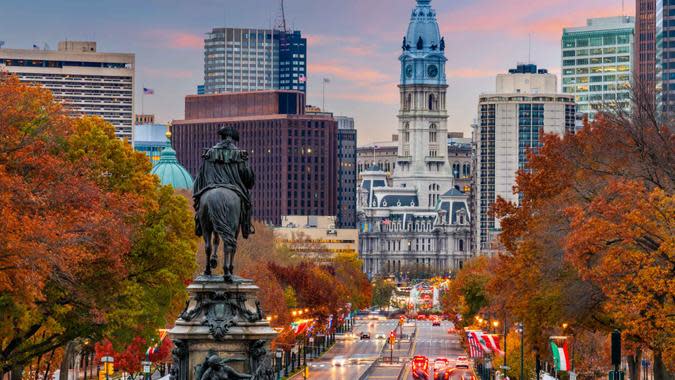
Philadelphia
Pennsylvania is a battleground state, where Trump holds a 0.2% lead, according to the latest data from Real Clear Polling.
However, Philadelphia is a “sanctuary city,” meaning its city laws protect undocumented immigrants from deportation or prosecution in direct opposition to the Trump administration’s immigration policies.

New York
Former President Trump and New York share a “love-hate” relationship. Trump expanded his real estate interests in New York City by developing and branding high-profile properties in Manhattan, such as Trump Tower, luxury hotels and office buildings.
However, New York led six states in suing the Trump Administration in 2021 for $250 million to receive the money the federal government withheld in an illegal immigration crackdown.
Trump and some of his political advisors have indicated that the former president would defund federal funding for some Biden-era initiatives. As a state with a large population center, New York is a top recipient of federal funding for public infrastructure and other needs.

Washington
Washington State could be at significant risk due to Trump’s stance on Chinese tariffs.
For example, Trump recently pledged to revoke China’s “most favored nation status,” which former President George H.W. Bush issued in 2001. The term means offering China the lowest tariff rates and other charges levied on imported Chinese products.
While on the campaign trail, Trump promised to impose a reciprocal 100% or 200% tariff or tax on China or any other country, which he said would protect American manufacturing jobs.
However, Washington State is a major exporter of apples, cherries and wheat to China. In addition, Boeing, the state’s second-largest employer, restarted new plane deliveries to China in June.
Washington is also the headquarters of tech giants like Microsoft and Amazon, which rely on Chinese manufacturing and markets. According to researchers at the Tax Foundation, increasing Chinese tariffs could result in higher prices, lower income and reduced unemployment.
Finally, Seattle and Tacoma are significant port cities and trade heavily with China. A decrease in trade volume due to increases in trade tariffs could affect local consumers and businesses.
Read More: Here’s the Income Needed To Be in the Top 1% in All 50 States
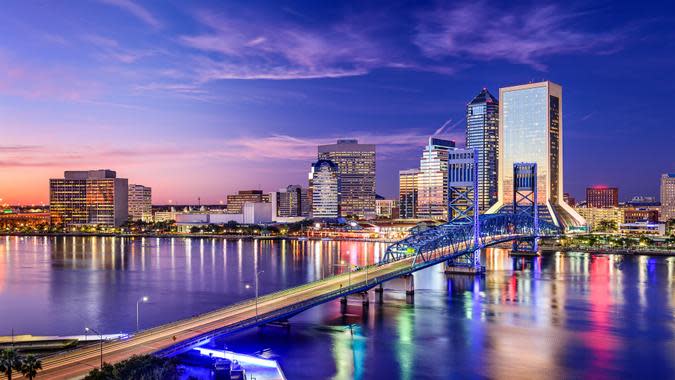
Florida
Florida seems like another safe bet under a second Trump administration because its state tax policies broadly align with Trump’s. For example, Florida doesn’t charge a state income tax and has a 5.5% corporate tax rate compared to states like Minnesota, which has a 9.8% corporate tax rate.
The Sunshine State collects an estimated $1 billion in taxes from undocumented immigrants. But that could be affected if Trump implements a mass deportation plan as he pledged during last month’s Republican National Convention.
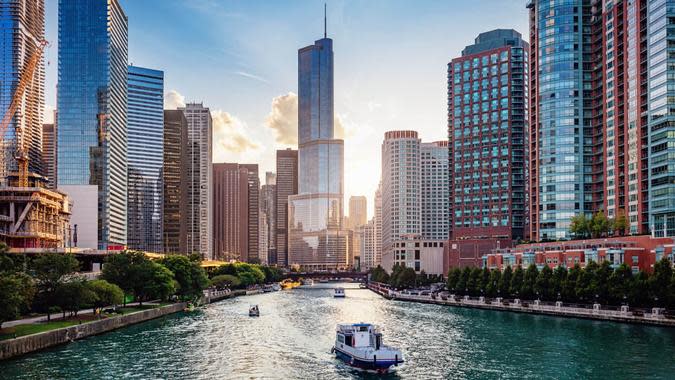
Illinois
Illinois is a wildcard, especially when it comes to Trump’s evolving healthcare policies. For example, Illinois reported a “record-high 16% jump” (nearly 400,000 people) in Affordable Care Act (ACA) enrollment, commonly known as “Obamacare.”
Trump has reportedly retracted his pledge to repeal the ACA if re-elected. However, in a 2024 campaign video, Trump said he would make the Affordable Care Act “much better and far less money.”
Nevertheless, the impact on Illinois residents if Trump changes his positions on the Affordable Care Act is currently unknown.
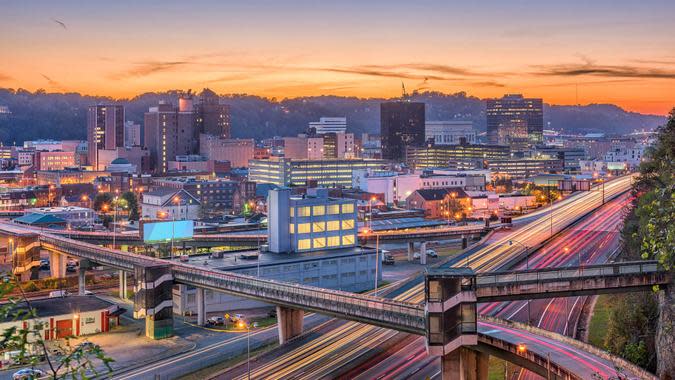
West Virginia
West Virginia is another wild card state should Trump win a second term.
According to Real Clear Polling, Harris currently holds a slim 1.1% average lead over Trump.
One of the biggest issues in rural states may be access to affordable health care. Nearly 522,000 people are enrolled in Medicaid and the Children’s Health Insurance Program (CHIP), which are government initiatives designed to provide low-income, older adults, children and other vulnerable populations access healthcare.
Trump recently said he wouldn’t cut Medicare or raise the retirement age. However, while on the campaign trail, he didn’t present details to avoid the projected depletion of the federal Social Security trust fund by 2035.
Read Next: How I Went From Middle Class to Upper Middle Class
Editor’s note on election coverage: GOBankingRates is nonpartisan and strives to cover all aspects of the economy objectively and present balanced reports on politically focused finance stories. You can find more coverage of this topic on GOBankingRates.com.
More From GOBankingRates
Mechanics Explain Why You Should Never Buy These 6 Popular Car Brands
9 Things the Middle-Class Should Consider Downsizing To Save on Monthly Expenses
This article originally appeared on GOBankingRates.com: 8 States That Could Suffer the Most From a Trump Presidency





